Transformation of the life strategies of student youth in the context of digitalization of everyday life
In the modern information society, the process of digitalization has become a key factor determining the dynamics of social changes, having a profound impact on the lifestyle, value system, and behavioral strategies of various social groups. The relevance of this study is due to the need to identify the nature and direction of changes in the social practices of student youth caused by the digitalization process. The empirical basis of the study includes a vast array of data obtained from a comprehensive sociological survey conducted among students in the city of Oryol in 2023. Quantitative methods of questioning were used to objectively reflect the diversity of views, attitudes, and behavioral reactions of young people to the digitalization of their environment. The purpose of this work is to comprehensively study the transformation of social strategies among students in the context of digitalization of everyday life, identify key trends and patterns of this process, and determine possible directions for further development of social relations in a digitalized society. The study aimed to analyze the attitudes of young people towards digital technologies, determine their level of digital literacy, examine their behavioral practices in the digital environment, and identify existing problems and contradictions associated with digitalization. The scientific significance of the study lies in an in-depth understanding of the nature of social changes that occur under the influence of digitalization, which allows us to expand the theoretical foundations of youth sociology and the informatization of society. The practical significance is determined by the possibility of using the obtained results to develop effective educational programs aimed at improving the digital literacy of young people, as well as to formulate state policy in the field of digitalization of education and the social sphere.
Figures
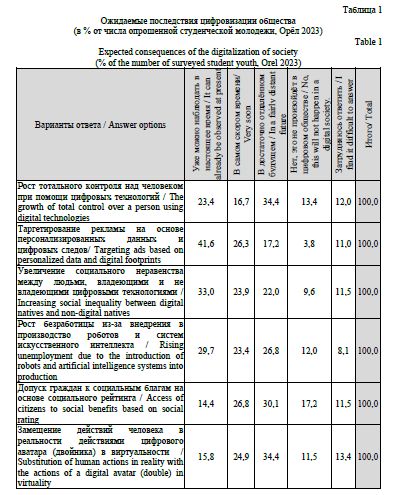
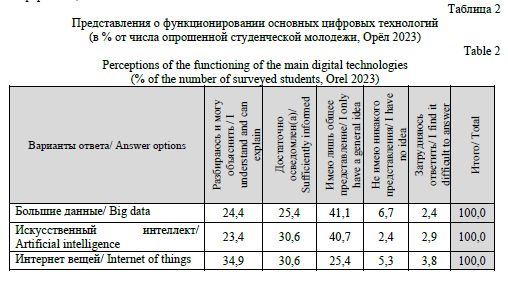
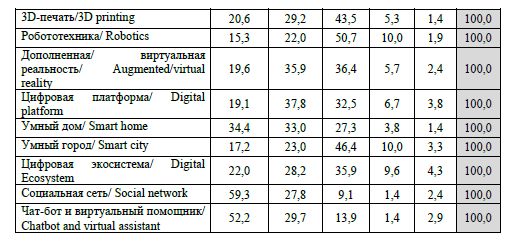
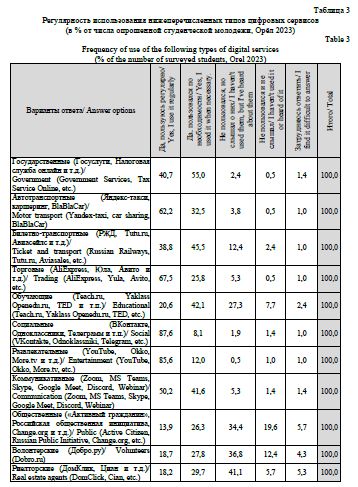



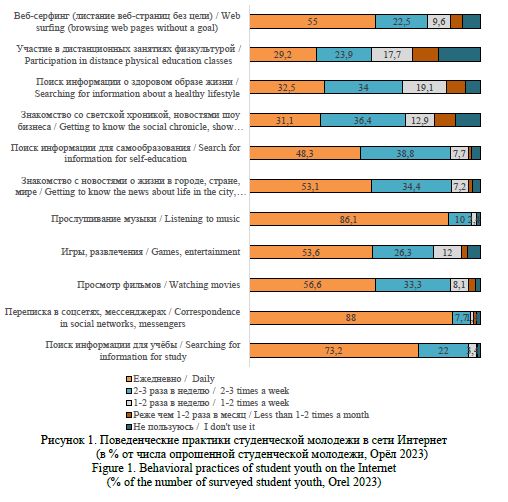
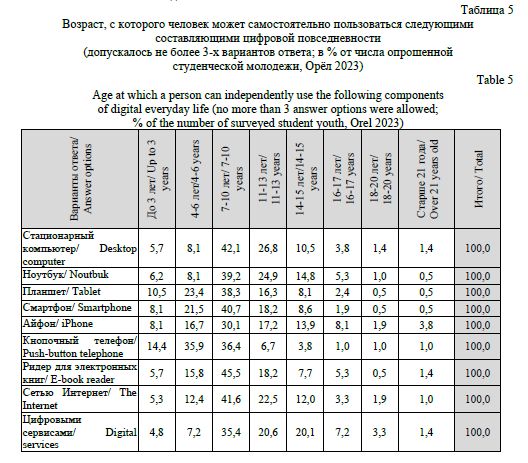
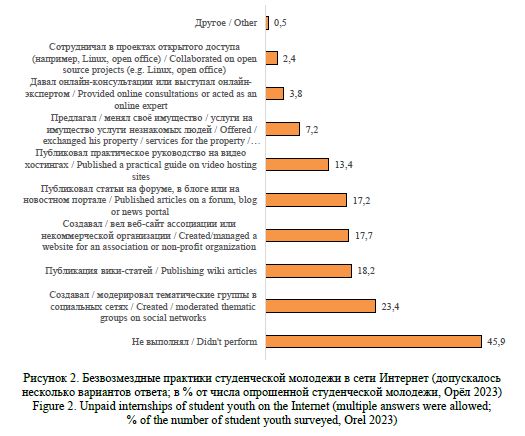
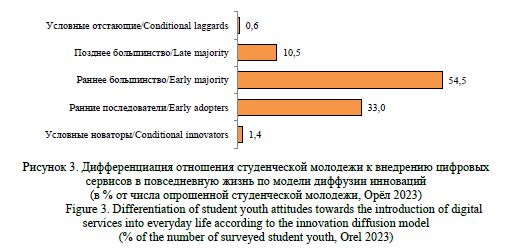
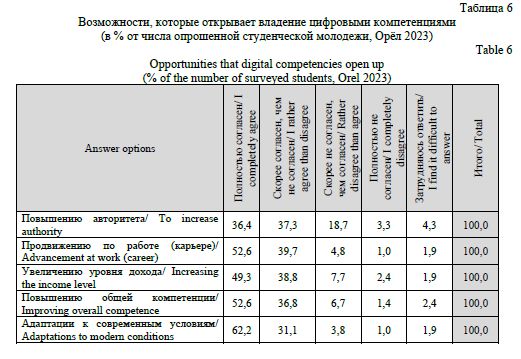
Alekseenok, A. A., Isaev, A. V., Kaira, Yu. V. “Transformation of the life strategies of student youth in the context of digitalization of everyday life”, Research Result. Sociology and management, 11 (3), 161-184.
DOI: 10.18413/2408-9338-2025-11-3-1-0.


















While nobody left any comments to this publication.
You can be first.
Alekseenok, A. A. (2022), “Virtual environment as a new form of social reality of modern youth”, Informatsionnoe razvitie Rossii: sostoyanie, tendentsii i perspektivy: sb. st. XII Vserossiyskoy nauch.-prakt. konf., Orel, 03 dekabrya 2021 g.[Information development of Russia: status, trends, and prospects: collection of articles from the XII All-Russian scientific and practical conference, Oryol, December 3, 2021], RANEPA (Srednerusskiy institut upravleniya), Orel, Russia, 104-112, EDN: KOFXKV. (In Russian)
Bell, D. (2004), Gryadushchee postindustrialnoe obshchestvo. Opyt sotsialnogo prognozirovaniya [The Coming Post-Industrial Society. A Venture in Social Forecasting], Academia, Moscow, Russia, ISBN: 5-87444-203-0, EDN: QOCVVP. (In Russian)
Bulanova, M. B. (2020), “NEET youth in the digital society”, Tsifrovoe obshchestvo – novy format sotsialnoy realnosti [Digital society – a new format of social reality], in Skvortsov, N.G. and Asochakov, Yu.V. (eds.), Skifiya-print, St. Petersburg, Russia, 494-495, EDN: IWWUAF. (In Russian)
Bulanova, M. B. (2022), “Typology and strategies of Russian NEET youth”, Samoregulyatsiya v molodezhnoy srede: tipologizatsiya i modelirovanie [Self-regulation in the youth environment: typologization and modeling], FNISC RAN; Epitsentr, Belgorod, Russia, 143-148, EDN: OEQCCQ. (In Russian)
Vernadsky, V.I. (1988), Filosofskie mysli naturalista [Philosophical Thoughts of a Naturalist], Nauka, Moscow, Russia, ISBN: 5-02-003325-1, EDN: HDSDRA. (In Russian)
Gorshkov, M. K., Tikhonova, N. E., Andreev, A. L. et al. (2023), Molodezh i Rossiya budushchego [Youth and the Future of Russia], Izd. “Ves Mir”, Moscow, Russia, ISBN: 978-5-7777-0910-3, EDN: OAGDSK. (In Russian)
Eliseeva, E. S. (2019), “The influence of the Internet on the socialization of youth as a phenomenon of modernity”, Sotsialnaya rabota v sovremennom mire:vzaimodeystvie nayki, obrazovania i praktiki: problemy detey i milodezhi v kontekste sotsialno-gymanitarnuh issledovaniyah [Social Work in the Modern World: Interaction of Science, Education, and Practice: Issues of Children and Youth in the Context of Social and Humanitarian Research], Epitsentr, Belgorod, Russia, 120-124, EDN: GIGIRY. (In Russian)
Zubok, Yu. A. (2018), “Meaning-of-life values in the cultural space of Russian youth”, Research Result. Sociology and Management, 4 (3), 3-13, DOI: 10.18413/2408-9338-2018-4-3-0-1, EDN: YLIAHZ. (In Russian)
Klinkova, D. A. (2022), “Digital reality: communications in the language of algorithms”, Nauchnoe mnenie, (12), 35-40, DOI: 10.25807/22224378_2022_12_35, EDN: VPJRNN. (In Russian)
Levashov, V. K. (2021), “Images of the Future in the Minds of Russian Youth: Value Orientations, Digital Innovations, and Socio-Political Expectations”, Vestnik Yuzhno-Rossiyskogo gosudarstvennogo tekhnicheskogo universiteta (NPI). Seriya: Sotsialno-ekonomicheskie nauki, 14 (2), 104-120, DOI: 10.17213/2075-2067-2021-2-104-120, EDN: CETQMU. (In Russian)
Levashov, V. K. (2023), “Russians on the challenges of AI, neural networks and social optimism”, Sociological Studies, (11), 115-120, DOI: 10.31857/S013216250028537-3, EDN: KJRUCP. (In Russian)
Radkevich, A. L. (2009), “Social Internet practices as an object of sociological analysis”, Znanie. Ponimanie. Umenie, (3). (In Russian)
Toffler, A. (2010), Tretya volna [The Third Wave], transl. by Burmistrov, K.Yu. et al., AST, Moscow, Russia. (In Russian)
Touraine, A. (1998), Vozvrashchenie cheloveka deystvuyushchego: Ocherk sotsiologii [The Return of the Acting Man: Essay in Sociology], Nauchnyi mir, Moscow, Russia, 85-95. (In Russian)
Shapovalova, I. S. (2015), “Impact of Internet communications on youth behavior and intellectual development”, Sociological Studies, (4 (372)), 148-151, EDN: TRRQPZ. (In Russian)
Merkulov, P. A., Alekseenok, A. A., Prokazina, N. V. et al. (2025), Tsifrovoe obshchestvo v subektivnykh otsenkakh studencheskoy molodezhi [Digital society in the subjective assessments of student youth], RANEPA, Orel, Russia, EDN: ZBUSOK. (In Russian)
Boltanski, L. and Thévenot, L. (1999), “The sociology of critical capacity”, European Journal of Social Theory, 2 (3), 359-377, DOI: 10.1177/136843199002003010, EDN: JRXHXP.
Castells, M. (2000), The Rise of the Network Society: Economy, Society and Culture. Vol. 1, Wiley-Blackwell, Oxford, UK and Malden, MA, USA.
Esser, H. (1996), “What is Wrong with ‘Variable Sociology’?”, European Sociological Review, 12 (2), 159-166, DOI: 10.1093/oxfordjournals.esr.a018183, EDN: IOGCXB.
Garfinkel, H. (1967), Studies in Ethnomethodology, Prentice-Hall, Englewood Cliffs, NJ, USA.
Goffman, E. (1959), The Presentation of Self in Everyday Life, Anchor Books, New York, NY, USA.
Latour, B. (2005), Reassembling the Social. An Introduction to Actor-Network-Theory, Oxford University Press, New York, NY, USA, DOI: 10.1093/oso/9780199256044.001.0001.
Schutz, A. (1967), The Phenomenology of the Social World, Northwestern University Press, Evanston, IL, USA.